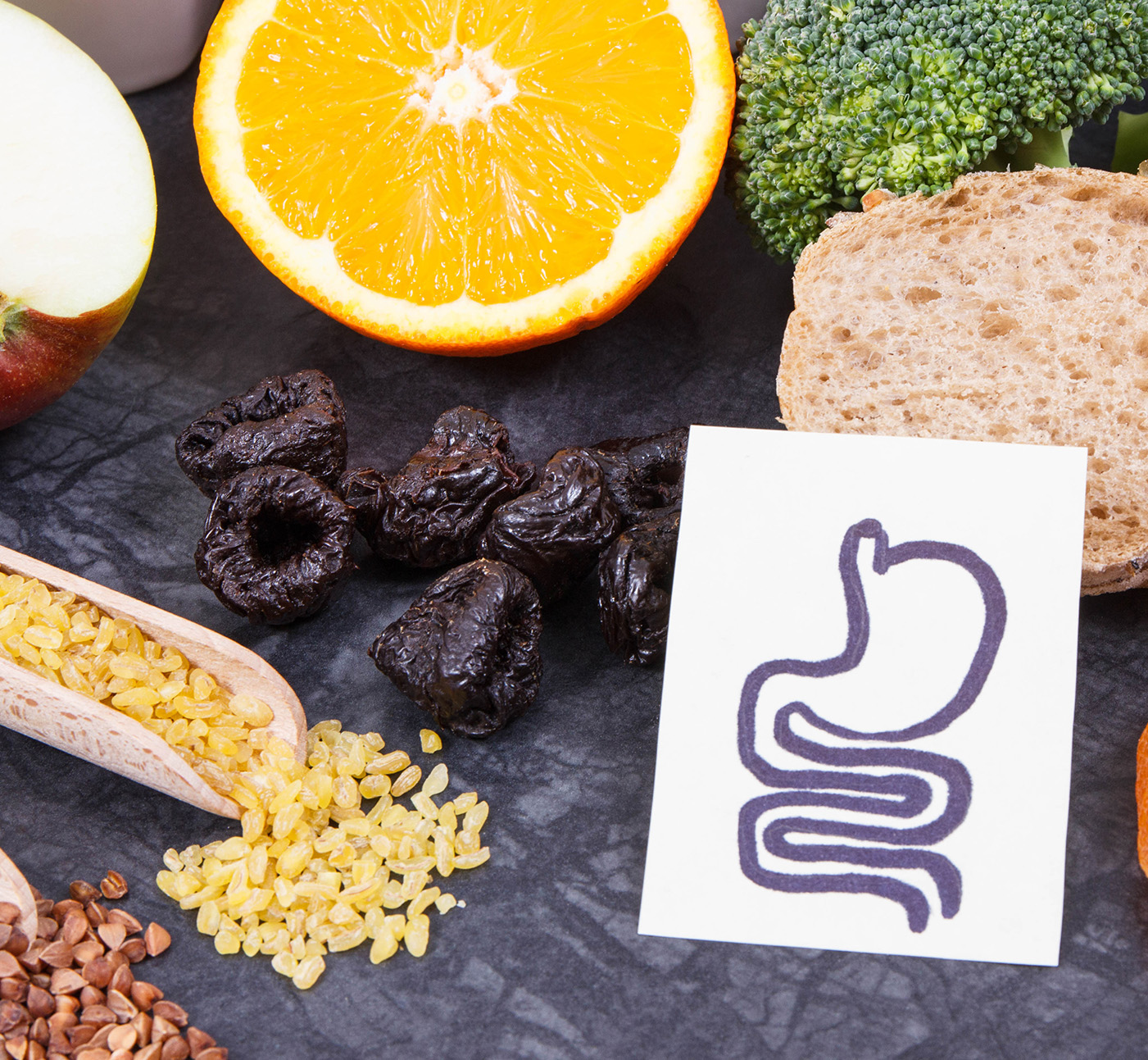

Nutrition Tips for Better Gut Health
If you suffer from poor gut health or digestive tract issues, chances are that something is off balance in your gut microbiome. Everyone’s gut microbiome is unique and is affected by many things including genetics, age, gender, diet, and environmental factors. The gut assists with digestion including the absorption of important nutrients. Good bacteria in the intestines fight off bad bacteria and contribute to immunity. In fact, 70% of the immune system is found in the gut.
A healthy gut microbiome can:
- fight inflammation
- reduce the risk of chronic diseases like heart disease, type 2 diabetes, and autoimmune disorders.
- aid in weight loss
- decrease symptoms of irritable bowel syndrome or inflammatory bowel disease.
- supports brain healthand mood disorders
A unhealthy gut can have a detrimental impact on the way you feel. It can:
- decrease your body’s ability to absorb certain nutrients
- cause gastrointestinal distress
- lead to inflammation and chronic fatigue.
Best food choices for a Healthy Gut:
- High Fiber food – Fruits, Vegetables, Whole grain, Nuts, Seeds, Beans and Legumes
- Foods High in Omega 3 Fatty Acids – Olive oil, Nuts, Seeds, Fish, and Seafood
- PREbiotic food – bananas, asparagus, cabbage, onions, garlic, beans, legumes, oats, almonds
- PRObiotic food – yogurt, cottage cheese, kefir, miso, kombucha
- Foods High in Polyphenols – fruits, vegetables, spices and herbs, black tea, and coffee

Foods to AVOID for a healthy gut:
- Ultra-processed food
- Artificial sweeteners
- Refined sugar
- Alcohol
- Acidic Food
Please Share
categories
Recent Posts

Nutrition Tips for Better Gut Health
If you suffer from poor gut health or digestive tract issues, chances are that something is off balance in your gut microbiome. Everyone’s gut microbiome is unique and is affected by many things including genetics, age, gender, diet, and environmental factors. The gut assists with digestion including the absorption of important nutrients. Good bacteria in the intestines fight off bad bacteria and contribute to immunity. In fact, 70% of the immune system is found in the gut.
A healthy gut microbiome can:
- fight inflammation
- reduce the risk of chronic diseases like heart disease, type 2 diabetes, and autoimmune disorders.
- aid in weight loss
- decrease symptoms of irritable bowel syndrome or inflammatory bowel disease.
- supports brain healthand mood disorders
A unhealthy gut can have a detrimental impact on the way you feel. It can:
- decrease your body’s ability to absorb certain nutrients
- cause gastrointestinal distress
- lead to inflammation and chronic fatigue.
Best food choices for a Healthy Gut:
- High Fiber food – Fruits, Vegetables, Whole grain, Nuts, Seeds, Beans and Legumes
- Foods High in Omega 3 Fatty Acids – Olive oil, Nuts, Seeds, Fish, and Seafood
- PREbiotic food – bananas, asparagus, cabbage, onions, garlic, beans, legumes, oats, almonds
- PRObiotic food – yogurt, cottage cheese, kefir, miso, kombucha
- Foods High in Polyphenols – fruits, vegetables, spices and herbs, black tea, and coffee

Foods to AVOID for a healthy gut:
- Ultra-processed food
- Artificial sweeteners
- Refined sugar
- Alcohol
- Acidic Food
Please Share







